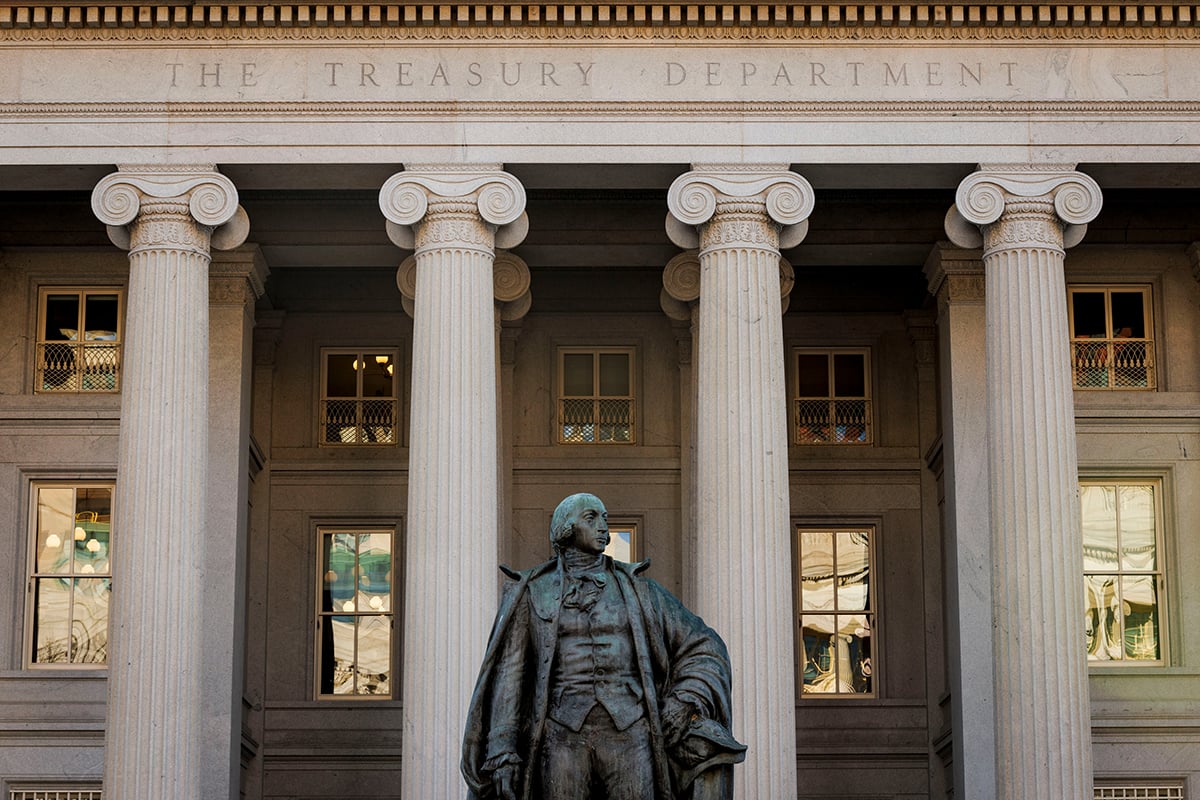Big U.S. companies don't know how American tax laws will be changed in the coming months, but they're not waiting to find out.
Comcast, 3M Co. and Wal-Mart Stores are among the companies buying back bonds now in transactions that could save them millions of dollars if the latest proposed tax changes from the Trump administration and Congress end up becoming law. A wave of these deals happened after the election as Republicans talked about tax changes being high on their priority list. More of these transactions are happening now as the lawmakers and the White House renew their focus on overhauling the rules.
“If you're a company and you don't do it, you'll regret it,” said Tim Doubek, a Minneapolis-based money manager at Columbia Threadneedle. “There's no downside to doing it.”
Wal-Mart is buying back up to $8.5 billion of debt, and on Wednesday sold $6 billion of bonds in six parts to help finance that repurchase. Blue-chip companies have sought to buy back an eye-popping $178.5 billion of bonds so far this year, compared with $87.3 billion at the same point last year, according to data compiled by Bloomberg. Much of that activity is driven by possible tax changes, Doubek said. But these transactions make sense even without tax reform, because they often allow companies to lock in lower rates on debt and push back the dates they would have to repay their borrowings.
The refinancing underscores how companies are looking to wring as much benefit as they can out of current tax laws even as they stand to benefit from future changes. Under current laws, corporations can deduct all of their interest payments from their taxable income. Republicans are considering limiting that deductibility, and lowering the standard corporate tax rate to 20% from 35%.
John Demming, a spokesman for Comcast, declined to comment. Lori Anderson, a spokeswoman for 3M, and Randy Hargrove, a spokesman for Wal-Mart, didn't respond to requests for comment.
Companies that buy back their higher-interest debt in the coming weeks will pay more than the face value for this debt, which amounts to pre-paying interest on those securities. They can fully deduct those payments from their tax bills at current higher rates.
“With tax reform, these transactions are definitely becoming more attractive,” said Ajay Khorana, global head of Citigroup's financial strategy and solutions group. “Borrowers are trying to be proactive.”
Details of any tax overhaul are still hazy. The framework for tax reform that Republicans released on Sept. 27 said only that interest deductions “will be partially limited,” for example. Rep. Kevin Brady, chairman of the House Ways and Means Committee, said before the release of the proposal that lawmakers plan to grandfather existing debt when it comes to deducting interest expenses, but if corporate tax rates decline, companies would get less benefit from that full deduction than they can get now.
On Track?
The timing for any law to be passed is unclear. The 1986 tax reform took around two years to hammer out. This time around, Republicans hold both chambers of Congress, but control the Senate by only a slim majority. Donald Trump faces ideological demands from Sen. Rand Paul of Kentucky and is feuding with Sen. Bob Corker, who has been a vocal critic of the White House and wants tax cuts that don't add to the deficit. The president has had previous difficulty with votes from Sens. Susan Collins of Maine and Lisa Murkowski of Alaska. Rep. Brady said on Thursday that overhaul is still on track for this year.
Even with incomplete information about how new laws will look, companies have been positioning as best they can for any changes. The Republican plan to make it cheaper for companies to bring overseas profit back to the U.S. has spurred some companies to favor short-term borrowing recently, strategists at Bank of America Corp. wrote in a report. When U.S. corporations bring cash from foreign countries back home, they expect to use it to pay off debt.
Gilead Sciences last month sold $3 billion of bonds to help finance an acquisition. All of the bonds it offered matured in two years or less, which is unusual for a bond offering that is funding a purchase. The company has more than $30 billion of cash abroad, according to its filings.

From: Bloomberg News
Complete your profile to continue reading and get FREE access to Treasury & Risk, part of your ALM digital membership.
Your access to unlimited Treasury & Risk content isn’t changing.
Once you are an ALM digital member, you’ll receive:
- Thought leadership on regulatory changes, economic trends, corporate success stories, and tactical solutions for treasurers, CFOs, risk managers, controllers, and other finance professionals
- Informative weekly newsletter featuring news, analysis, real-world case studies, and other critical content
- Educational webcasts, white papers, and ebooks from industry thought leaders
- Critical coverage of the employee benefits and financial advisory markets on our other ALM sites, PropertyCasualty360 and ThinkAdvisor
Already have an account? Sign In Now
*May exclude premium content© 2025 ALM Global, LLC, All Rights Reserved. Request academic re-use from www.copyright.com. All other uses, submit a request to [email protected]. For more information visit Asset & Logo Licensing.





